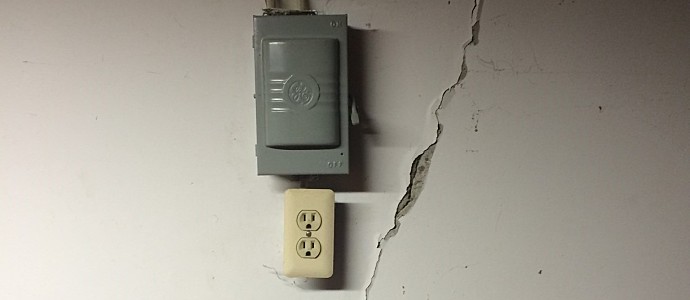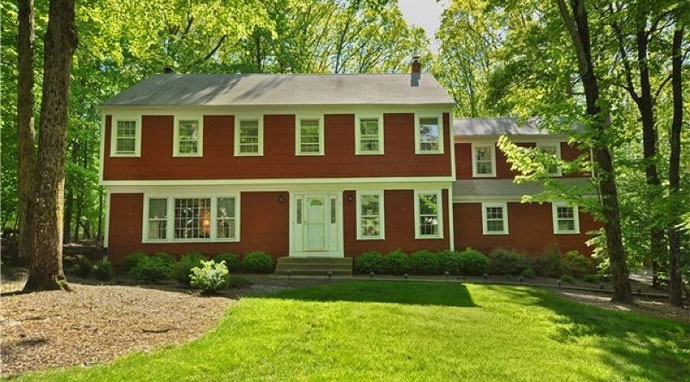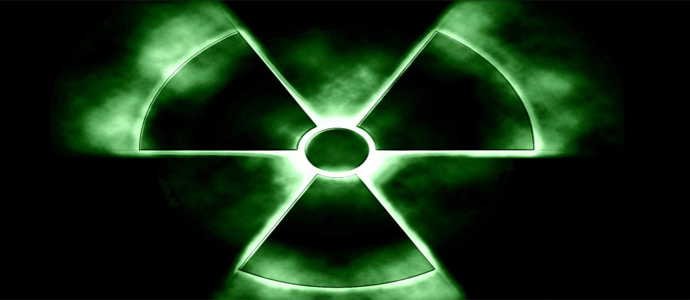Why Radon Matters in Real Estate
What is radon gas, and how does it affect real estate transactions in Grand Rapids, Michigan? Is radon really something we need to be concerned with? Here are steps both buyers and sellers should take into account.
At this point, I’m guessing that every adult has heard of radon gas. It holds a coveted spot on the periodic table that we all stared at in boredom during high school, and interestingly enough, it was discovered at the dawn of the scientific revolution of the 20th century. But it wasn’t until the mid-’80s that the large-scale presence of indoor radon exposure started to receive widespread notice.
Radon is a radioactive gas that forms as a byproduct of the decay of uranium, and it seeps into the low-lying rooms of homes through cracks in the foundation, gaps around pipes, and any portal to the exposed earth. Its gaseous form makes radon dangerous, because it can be unknowingly inhaled on a regular basis. Since the discovery of the presence of radon in modern dwellings, air quality specialists have named it the second-leading cause of lung cancer in humans, and the leading cause of lung cancer among nonsmokers.
Radon Testing for Home Buyers
As real estate agents, we always suggest that buyers get a radon test before purchasing a home. This is for two reasons.
1. Radon is dangerous, and can be inexpensively eliminated from a home. In the current real estate market, if a home that’s being sold possesses a high level of radon, it’s often understood that the sellers will be asked to pay for the abatement of the gas before the sale goes through.
2. If you don’t test, your future buyer probably will. And if your home has high levels of radon, not only will you have exposed yourself, but you’ll also be stuck fronting the bill when time comes time to sell.
Radon Abatement Systems
In Grand Rapids, there’s no pattern to predict which houses will have a high radon reading. Homes right next to each other could have drastically different radon readings. In our market, the typical solution to a high radon reading is to install an abatement system. This system consists of a PVC pipe stubbed down under the foundation with an exhaust fan that sucks the stale air from under the foundation and exhausts it above the roofline. In Michigan, a radon mitigation system will cost around $800-$1200.
Other Ways to Reduce Radon
When you do a radon test, the results will come back as a number signifying the level of radon detected. The acceptable radon level in Grand Rapids is 4pci or below. We regularly see results come back just above 4pci. In this case, there are radon-reducing solutions that are cheaper than installing an abatement system. These suggestions are also a good idea to apply to your home before selling to decrease your risk of having a high radon reading.
- Seal the cracks in the floor of your foundation.
- Caulk the gaps around service pipes stubbed into the basement walls and floor.
- Pressurize your lower level — installing a fan that provides fresh air to a low-lying room can pressurize that room enough to ensure that no stale air from the ground enters the living space
- Install a heat recovery ventilator (HRV) or an energy recovery ventilator (ERV), products designed to provide fresh air for the house.
If you have a radon problem, make sure to check out the EPA’s website, which is the ultimate resource for radon knowledge.
So now you know radon is not just a scare tactic; it’s a real phenomenon with real consequences — but radon problems can be easily addressed in most homes, and in most cases, they’re a non-issue, as long as certain steps are taken before the sale or purchase of a home.
[cf]skyword_tracking_tag[/cf]





5 Comments
Why Radon Matters in Real Estate | My Website
September 11, 2014[…] Why Radon Matters in Real Estate […]
Why Radon Matters in Real Estate | Patrick Lim's Blog
September 12, 2014[…] post Why Radon Matters in Real Estate appeared first on Coldwell Banker Blue […]
Why Radon Matters in Real Estate | Donna Dagley's Blog
September 12, 2014[…] Install a …read more […]
Why Radon Matters in Real Estate | Elouise Margita's Blog
September 12, 2014[…] Install a …read more […]
Frank Dolski
November 19, 2015Brett,
Good information! I wrote on the topic in the Philadelphia region. Homeowners need to be educated and also know that Radon can be remediated. Thanks for posting!